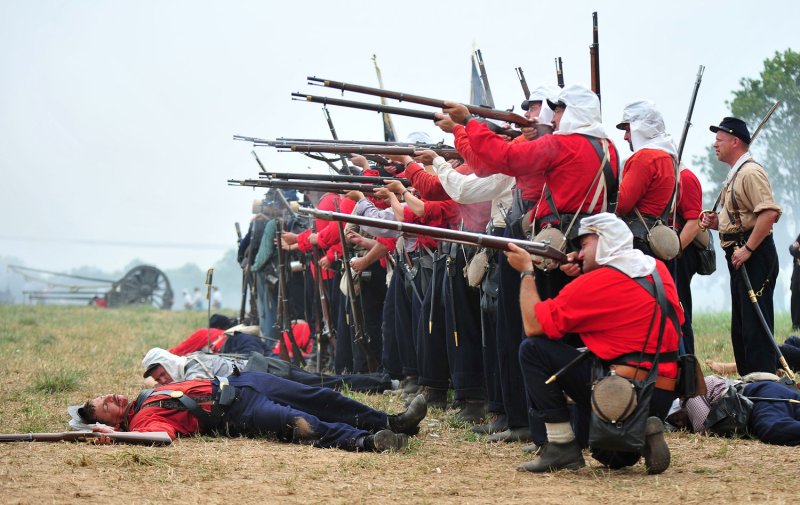1 of 5 | Union soldiers takes aim during the reenactment of the Battle of Bull Run at Brawner Farm in Manassas, Virginia on July 24, 2011. This event marked the 150th anniversary of the the first major battle of the Civil War. UPI/Kevin Dietsch |
License Photo
BINGHAMTON, N.Y., Sept. 21 (UPI) -- An analysis of historic census figures reveals the death toll in the U.S. Civil War was higher than previously estimated, a historian says.
J. David Hacker of Binghamton University in New York says the war's dead numbered about 750,000, an estimate 20 percent higher than the commonly cited figure of 620,000, a university release reported Wednesday.
Many historians agree the 620,000 estimate is flawed, as neither the Union nor the Confederacy kept standardized personnel records.
"There are also huge problems estimating mortality with census data," Hacker said. "You can track the number of people of certain ages from one census to the next, and you can see how many are missing," but people are routinely undercounted, he said.
In his analysis of census data, Hacker looked at the ratio of male survival relative to female survival and established a "normal" pattern in survival rates by looking at the numbers for 1850-1860 and 1870-1880.
Then he compared the war decade, 1860-1870, to the pattern to come up with his estimate of 750,000.
Pulitzer Prize-winner James McPherson, a pre-eminent Civil War historian, says the new figure should gain acceptance among researchers of the era.
"An accurate tally -- or at least a reasonable estimate -- is important in order to gauge the huge impact of the war on American society," he says. "Even if the number of war dead was 'only' 620,000, that still created a huge impact, especially in the South, and a figure of 750,000 makes that impact -- and the demographic shadow it threw on the next two generations of Americans -- just that much greater."















